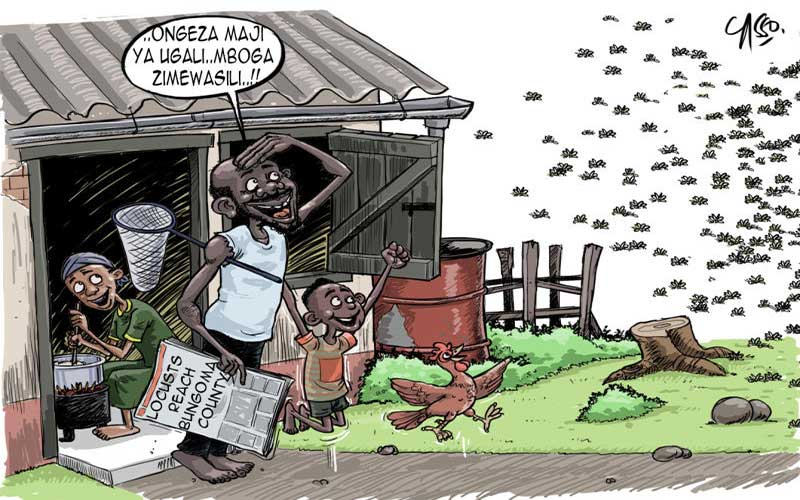×
The Standard e-Paper
Kenya’s Boldest Voice

Before coronavirus hung over Kenya like the sword of Damocles, one of the hottest subjects in the public sphere besides Building Bridges' Initiative (BBI), was the locust infestation.